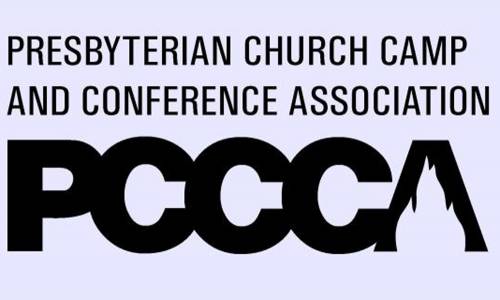Social distance challenges require outside-the-box thinking to survive and thrive
By Scott O’Neill | Presbyterian News Service

LOUISVILLE — Like most organizations, PC(USA)-affiliated camp and retreat centers were blindsided by the recent COVID-19 pandemic that has swept through the country and world over the past several months. Stay-at-home and social distancing orders struck the very heart and infrastructure of summer camp and retreat resident ministries. But amidst it all, associate for Christian Formation Brian Frick — who has oversight of PC(USA)-affiliated camps and retreats — sees positive outcomes for 2020 that hopefully carry over into 2021.
“Camp leaders did an incredible job juggling the uncertainty during the pandemic’s early days,” said Frick. “They quickly developed plans that would ensure survival through 2020 and carry them through into what we hope is an even better 2021.”
Immediate concerns centered on establishing financial security, including but not limited to national aid from the federal government’s Paycheck Protection Program and small business disaster assistance loans. But camp leaders quickly turned their attention to summer resident camp and retreat programs. The question of the day: Can we offer these camps safely? And that’s when some creative thinking came into play.
Most PC(USA)-affiliated camps created and offer either an online or a “camp-in-a-box” solution. Several are offering modified resident camping following local health guidelines. Retreat leaders have re-evaluated their ministries to meet local, state and national safety guidelines.
The camp-in-a-box program delivers materials to campers’ homes with directions that enable them to participate in normal camp activities. It includes games, Bible studies, adventures, camp recipes and songs. Distinct from online camp, the camp-in-a-box goal is to pull campers away from the screen and disconnect participants from the computer. Ferncliff Camp and Conference Center in Little Rock, Arkansas has more than 1,300 campers signed up for its June program; new participants must wait until July to receive their materials.
Online camp, on the other hand, helps participants stay true to the community aspect of camp by bringing campers together with counselors for campfires, crafts, and nature exploration. It does include some screen time, but Frick feels it is a fair tradeoff for the community-building aspect it provides.

Brian Frick
“Both the online and camp-in-a-box offerings keep campers engaged in the outdoors even when they can’t be at camp,” said Frick. “This may not be a replacement for the faith community development found in person, but it ensures that our young congregations get a summer faith experience that brings them out of their regular routine.”
The Presbyterian Mission Agency’s (PMA) Office of Christian Formation partners with and supports Presbyterian Church Camp and Conference Center Association, and thus far has engaged with PCCCA on several key initiatives. One of them is a virtual, password-protected online camp portal that has the potential to be used alongside camp-in-a-box materials and engage young adults in leadership training. Others include respite retreats for pastors and church professionals created in partnership with Presbyterian Disaster Assistance, coaching and consulting around camp finances, and hosting a weekly mutual support gathering for camp and retreat professionals. That approach provides opportunities for networking and access to information on a variety of relevant topics. PMA is also exploring a crisis coaching model that focuses on financial challenges, with a long-range goal of preserving the camps for future ministry even it requires temporarily shutting down operations.
Despite the creativity and resourcefulness displayed by camp leaders and partners, Frick expects continued pressure on camp and retreat center budgets.
“Costs will increase as the public and health experts push for smaller groups, personalized equipment, and more frequent cleanings. Kitchen staff may need to be increased if each plate must be prepared individually, and will groups and individuals return to camp quickly enough to offset higher operating costs? If I had a crystal ball, I would expect the financial pressures that were acute at the beginning of this crisis to return in the fall, and there may be some tough decisions that need to be made if that is the case.”
Nevertheless, Frick has long-term faith in the camps and conferences ministry and has seen first-hand the response from his colleagues brought about by the viral pandemic.
“If there is any ministry that can adapt and respond, it is our camp and retreat centers. We will see innovation, deeper engagement with congregations and families, and an increased focus on authentic ministry. Faith community development across the generational spectrum will be the driver of success. It sounds crazy, but out of this crisis are going to come the best days for those who weather the storm.”
If you would like to help camp and retreats during this challenging time, you can give to your local camp and retreat center by finding it at BookARetreat.com or by supporting PCCCA in supporting camp leaders by donating at FundForCamp.org.
![]() You may freely reuse and distribute this article in its entirety for non-commercial purposes in any medium. Please include author attribution, photography credits, and a link to the original article. This work is licensed under a Creative Commons Attribution-NonCommercial-NoDeratives 4.0 International License.
You may freely reuse and distribute this article in its entirety for non-commercial purposes in any medium. Please include author attribution, photography credits, and a link to the original article. This work is licensed under a Creative Commons Attribution-NonCommercial-NoDeratives 4.0 International License.
Categories: Camps and Conference Centers, Christian Formation, Partner Associations
Tags: brian frick, camps and conference centers, covid-19, office of christian formation, PCCCA, pma, presbyterian church camp and conference association, presbyterian disaster assistance, presbyterian mission agency
Ministries: Camps and Conferences, Office of Christian Formation, Age and Stage Formation Ministries, Partner Associations